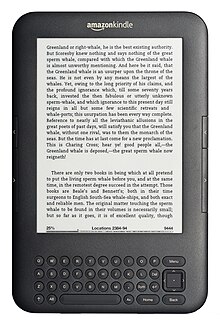LBS 708: ICTs and Libraries Class on 25 April 2017
E-Books and Open Education Resources
There was no class for the week of 16 - 22 April because of the University recess period. However, we had a project that we are busy with and I started to brainstorm about the topic I will choose.
This week lesson focused on the components of ebooks. We touched at the definition of ebooks, challenges affecting SA e-books markets, students/researchers attitudes towards e-books, licensing and pricing models.
E-books can be accessed from a number of mobile platforms, e.g. kindle, ipad, tablets, mobile phones, etc. Below is an example of an Amazon keyboard e-book reader (kindle).
 https://en.wikipedia.org/wiki/Amazon_Kindle
https://en.wikipedia.org/wiki/Amazon_Kindle
Open Educational Resources (OERs)
The information extracted from Anne Moon's OER Libguide define OERs as "Teaching and learning materials that are freely available online for everyone to use, whether you are an instructor, student or self-learner.
OERs include: textbooks, full courses, course modules, syllabi, lectures, homework assignments, quizzes, lab and classroom activities, pedagogical materials, games, simulations, specialised search engines, and many more resources contained in digital media collections from around the world."For the list of OERs that are published on the UWC library LibGuides click here

